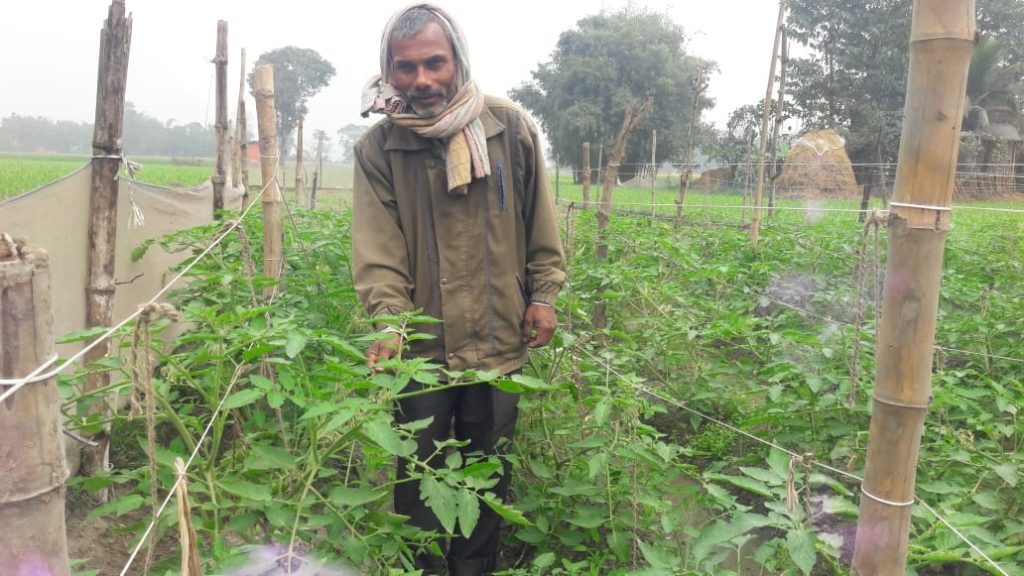
Calamities Recede Thanks to Vegetable Farming
Out from under a pile of debt thanks to his successful vegetable farming operations, Mr. Khurkun is a happy man.
As often happens with people of slender means, one calamity followed another in his life. A while back, he lost most of the land he farmed when the government built an irrigation canal. What was left over wasn’t enough to sustain his family of six, so he began working as a daily wage laborer in neighboring India. They scraped by until his wife fell ill and he was forced to take out a high-interest loan to pay for her treatment. When his mother died, he borrowed more for her funeral He borrowed more still to build a home and to pay for his daughter’s wedding. Under pressure from the moneylender, he sold off his remaining land to repay the loan. Then came the global pandemic.
Fortunately, local partner BICWS had already been promoting sustainable farming techniques in his village and had convinced Mr. Khurkun and others to form a vegetable-farmers group. Even though the lockdowns and travel restrictions made it difficult for them to buy chemical inputs and seeds, BICWS offered training on making organic fertilizer, insecticide, and pesticide, and taught irrigation principals. Encouraged by the training and the strong market for vegetables in the area, Mr. Khurkun took a chance on leasing a half-acre from a local landlord and started farming again.
“With the continuous support of the BICWS staff, I grow cabbage, green leafy vegetables, edible loofa, bitter gourd, tomatoes, chili, radish, okra, pumpkin, cauliflower and beans. I could easily sell the produce in the local farmers market at a favorable price”. Once the profits started mounting, he leased another acre. His solid monthly income has allowed him to repay half of his debt in one year.
Mr. Khurkur expressed sincere gratitude to BICWS and MCC “who came to help me when I was overloaded by so many problems.”
Nepal Jahada Program
Led by Mennonite Central Committee and Local Partner BICWS
